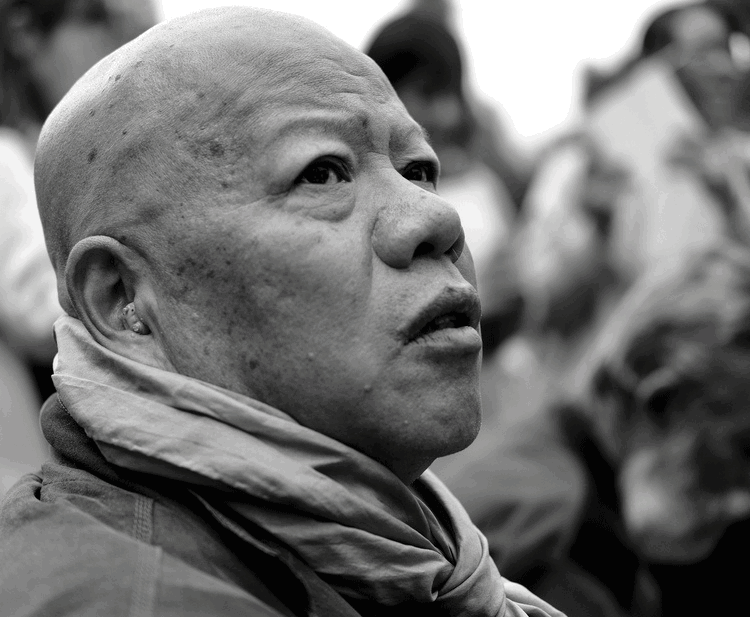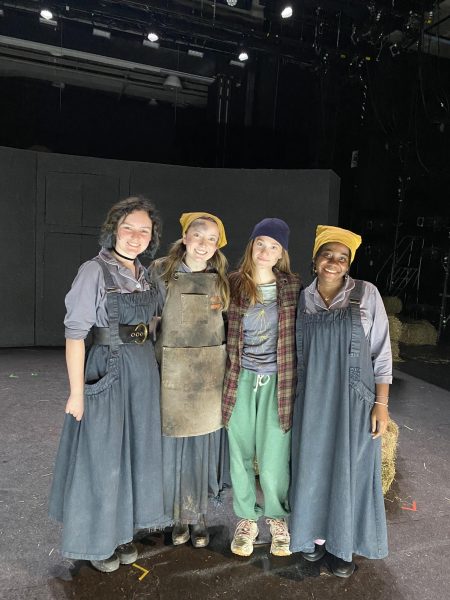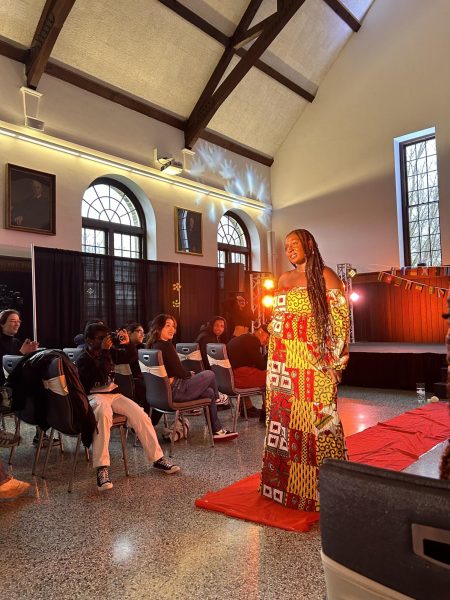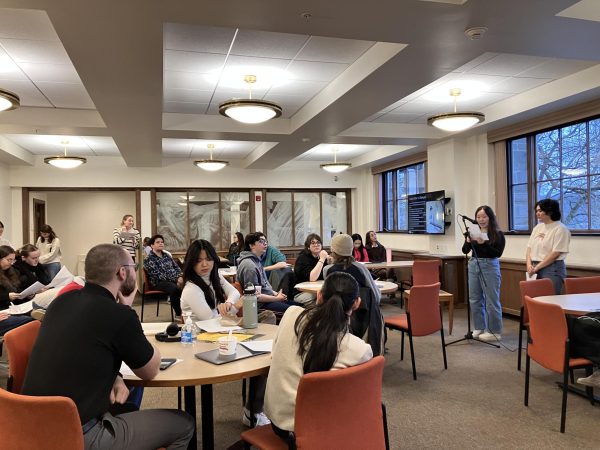Poet Yu Jian Visits for International Poetry Night
Colgate celebrated its Fourth Annual International Poetry Night in the Keck Center Lounge on Friday, April 5. The event featured special guest poet Yu Jian, a Chinese poet, writer and documentary film director. Yu Jian’s poem “Home,” written in cooperation with Colombia Professor Zhu Xiaoyang, won Taiwan’s 14th United Daily News New Poetry Prize in 2010, Taiwan’s Genesis Poetry Magazine Prize and the Lu Xun Literature Prize. Yu Jian’s work has been translated into 11 different languages.
Yu Jian gave a reading the day before Poetry Night in Lathrop Hall. Yu Jian read a poem titled “He Is a Poet” as well as a collection of poems about Hamilton, New York from when Yu Jian visited 15 years ago. Yu Jian’s poetry focused on nature and the beauty of Colgate’s campus, as well as the “small town-ness” of Hamilton. Yu Jian’s poetry was written in Chinese and translated into English. His poem “Hamilton” was translated by alum John Cavanagh ’09 and reads as follows:
“In remote Hamilton
there is a room full of Chinese books
Outside is a cabbage field and an abandoned railway
No way to know the origins of the books. Residents of this small town do not understand Chinese The moon on the fifteenth day of the eighth month always wants to
illuminate the poetry of Li Bai
By chance this white jade wine glass
is placed on a shelf exactly where the moonlight can reach it.”
On poetry night, students, faculty and staff read poetry, either original or published works, for those in attendance. Other students, faculty and staff wanting to be involved sent their poems along with, if needed, English translations to Nina Palisano, the Keck Center Office Manager. The poems were also projected.
One well-received poem was chosen by Ines Boumedienne, the French Language Intern. She read “La courbe de tes yeux” (“The curve of your eyes”) by Paul Éluard.
“I chose this poem because usually French poetry tackles sad and grave topics, for example Victor Hugo’s poems, but this one inspired me to see the beauty of women through the poet’s eyes. Women are depicted as a goddess able to create, and to do so the poet uses the four elements (air, fire, water and the earth). I also like this poem because it has a lot of figures of speech and every time you read that sort of poem again, you discover new aspects of it,” Boumedienne said.
The event was co-sponsored by the the Department of East Asian Languages and Literature, the Bicentennial Committee, the Language Council, the Department of the Classics, the Department of Romance Languages and the Keck Center for Language Study.
Contact Ignacio Villar at [email protected].











